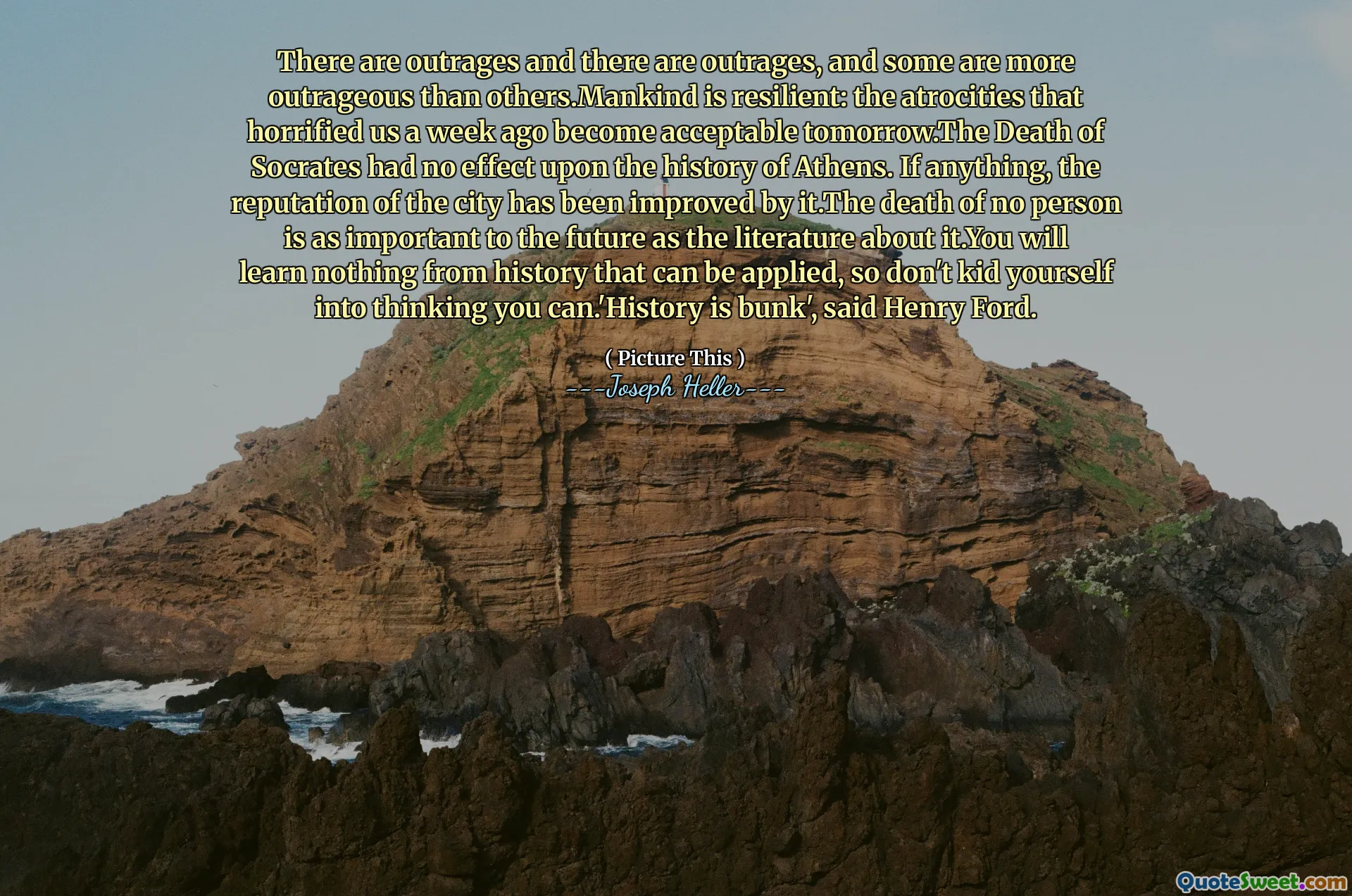
There are outrages and there are outrages, and some are more outrageous than others.Mankind is resilient: the atrocities that horrified us a week ago become acceptable tomorrow.The Death of Socrates had no effect upon the history of Athens. If anything, the reputation of the city has been improved by it.The death of no person is as important to the future as the literature about it.You will learn nothing from history that can be applied, so don't kid yourself into thinking you can.'History is bunk', said Henry Ford.
Joseph Heller discusses the nature of human reaction to outrage and tragedy, noting that some events evoke stronger feelings than others. He reflects on mankind's ability to adapt, suggesting that the horrors which shock us today often fade into acceptance tomorrow. Heller uses the example of the Death of Socrates, pointing out that it did not significantly impact Athens’ history; rather, it enhanced its reputation, indicating that the narratives surrounding events are more influential than the events themselves.
Additionally, Heller emphasizes the idea that historical events may not provide practical lessons for the future. By quoting Henry Ford as saying "History is bunk," he underlines a skepticism towards the value of historical knowledge. Heller warns against the illusion that we can learn meaningful lessons from the past, suggesting that the literature and stories created about events carry more weight than the historical events themselves, further questioning the utility of history in shaping future actions and perspectives.









